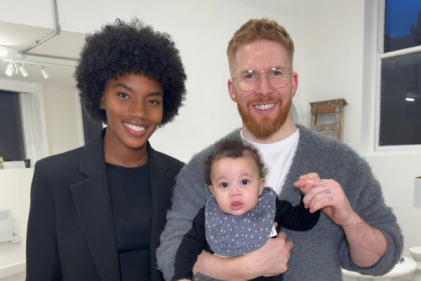One of the best ways for early detection of developmental disorders such as autism is the way your child uses language and physical movement to communicate. Disorders like autism are the result of neurological problems that can hamper a child’s social and cognitive development. It is a complex developmental disability that makes it difficult for those suffering from it to communicate with the outside world. The disease usually shows itself in the first three years, and is four times more prevalent in boys than girls.
There are warning signs to look out for, and if you see any of them, or feel uneasy about your child’s behaviour at all, get medical help as soon as possible.
At 13 to 18 months the warning signs are:
There are warning signs to look out for, and if you see any of them, or feel uneasy about your child’s behaviour at all, get medical help as soon as possible.
At 13 to 18 months the warning signs are:
- Your child does not smile or laugh when looking at you
- He does not vocalise often
- He can’t make more than one consonant sound in strings of jargon or babbling
- He doesn’t point or show you things that he is interested in
- When you call him, her doesn’t respond to his name
- Doesn’t recognise or respond to any familiar sounds
- Doesn’t gesture to communicate, like waving goodbye
- He doesn’t let you know what he wants or doesn’t want
- He doesn’t participate in social games, like patty cake
- He doesn’t initiate actions, and doesn’t even try to imitate speech or songs
- He doesn’t play with a variety of toys like blocks, cars, books
Look out for these signs when your child is 19 to 24 months old:
- He doesn’t interact at all during playtime
- He does not recognise pictures of familiar objects or people by verbally labelling them or pointing
- He does not participate in pretend play
- At the age of 25 to 30 months, if your child doesn’t listen to stories with pictures, doesn’t name pictures, and doesn’t follow simple instructions, then you can take these to be warning signs.
If anything is amiss at the age of 30 to 36 months, then the following signs will show up:
- He does not answer questions about recent experiences,
- He does not express physical states, such as when he is hurt or hungry
- Cannot follow two- or three-part instructions
- He does not take part in symbolic play such as using a piece of wood for a car, or a hairbrush for a phone
- He doesn’t have a conversation with you, but only talk to you to get his needs met
- No activity can hold his attention for at least 10 minutes



